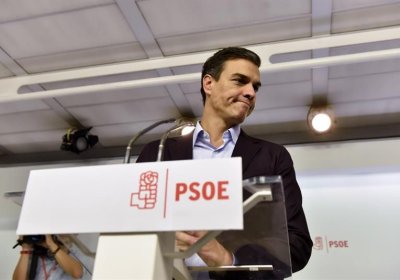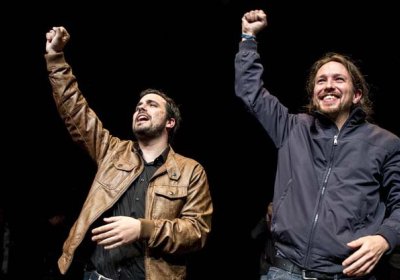Spanish anti-austerity party Podemos held a series of internal elections over November 7–9 throughout seven regions across Spain — Madrid, Andalusia, Extremadura, La Rioja, Castilla y Leon, Navarra y Aragón — and 12 different cities.
The elections were centred around the positions of the general secretaries in each region and territory, as well as the Autonomous Citizens’ Councils that form an integral part of the relatively new party’s political direction and organisation.








 United We Can.
United We Can — the united ticket made up of Podemos, the United Left, the green party Equo and three broader alliances in Catalonia, Galicia and the Valencian Country — is campaigning in the June 26 Spanish general elections on a plan to reverse economic austerity.
United We Can.
United We Can — the united ticket made up of Podemos, the United Left, the green party Equo and three broader alliances in Catalonia, Galicia and the Valencian Country — is campaigning in the June 26 Spanish general elections on a plan to reverse economic austerity.

 United Left leader Alberto Garzon and Podemos leader Pablo Iglesias celebrating the formation of an alliance between the two parties.
Spain's anti-austerity party Podemos and older left-wing party United Left announced on May 9 that they had reached a preliminary agreement to run on a joint platform before Spain's new general election on June 26.
United Left leader Alberto Garzon and Podemos leader Pablo Iglesias celebrating the formation of an alliance between the two parties.
Spain's anti-austerity party Podemos and older left-wing party United Left announced on May 9 that they had reached a preliminary agreement to run on a joint platform before Spain's new general election on June 26.
